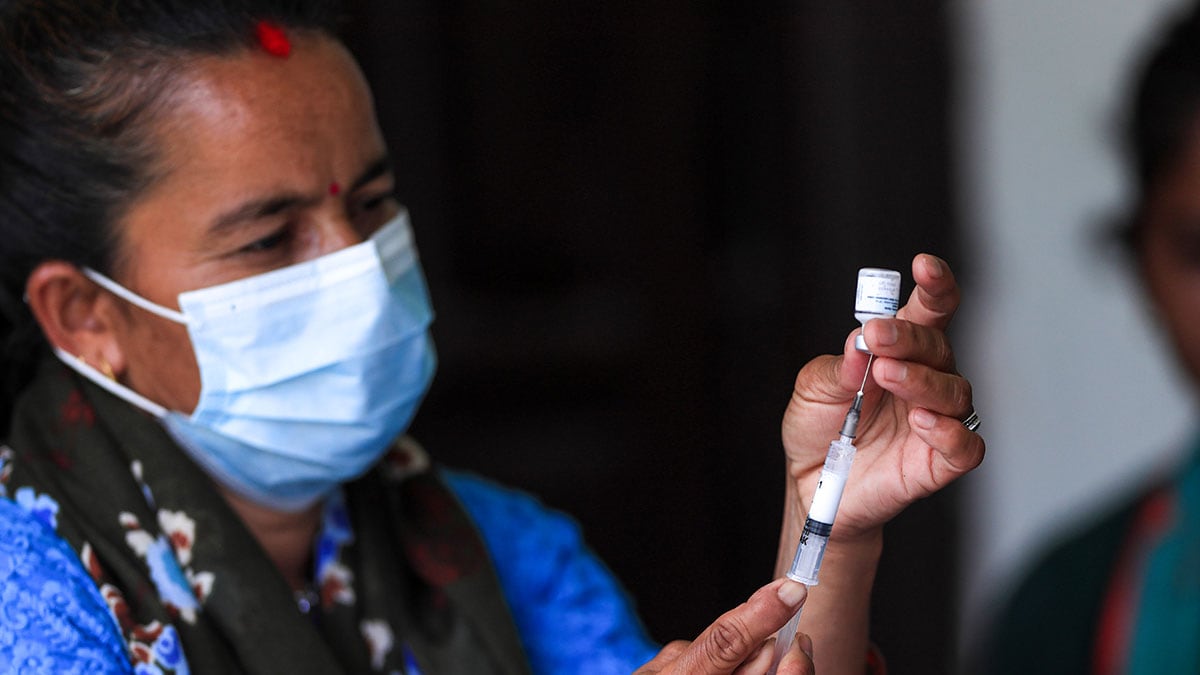Key points
- Tetanus is a serious illness that can be prevented with vaccines.
- Anyone can get tetanus, but in many countries the disease occurs in mothers and newborn babies because of unclean deliveries.
- The best protection against tetanus is to be vaccinated with a primary series and then receive booster doses on time throughout the lifespan.

Facts
People of all ages can get tetanus, but the disease is more dangerous for newborn babies.
Maternal tetanus
Maternal tetanus happens when a mother is infected during pregnancy or within 6 weeks of the end of pregnancy.
Neonatal tetanus
Neonatal tetanus happens when newborns show symptoms within the first 28 days of life.
Pregnant women and newborns can get infected with tetanus by:
- unclean deliveries done by untrained personnel
- cutting the umbilical cord with unclean contaminated instruments
- contact of the umbilical cord with contaminated animal dung, dirt, or mud
Impacts
Tetanus can lead to serious illness and death.
Tetanus can cause a range of potentially deadly symptoms. Patients without access to intensive care have a high risk of severe disease and death.
Tetanus infection is especially dangerous for a newborn. Most newborns who become infected without access to intensive care will die. Newborns who survive can suffer severe long-term neurologic, behavioral, and intellectual complications.
Global impacts of maternal and neonatal tetanus
In the 1980s, before widespread use of tetanus vaccine, tetanus caused over 1 million deaths each year, mostly in infants. Vaccines have brought the number of tetanus deaths down dramatically.
Despite the success of vaccination, an estimated 14,000 infants still died of neonatal tetanus in 2019.1 These deaths occurred mainly in countries with low tetanus vaccination rates.
Worldwide, millions of women and their babies remain unprotected against maternal and neonatal tetanus.
Prevention

The only way people can become immune to tetanus is by getting tetanus vaccines.
The best protection against tetanus is to be receive the primary vaccine series and booster doses on time throughout the lifespan.
For lifelong protection, the World Health Organization (WHO) recommends at least 6 doses of tetanus vaccines, including three booster doses after those given in infancy.
Vaccination during pregnancy can also prevent tetanus among mothers and newborns. To help prevent tetanus, women should be vaccinated before or during pregnancy. In addition, deliveries should happen in safe, clean conditions with sanitary measures taken to cut umbilical cords.
- Kanu FA, Yusuf N, Kassogue M, Ahmed B, Tohme RA. Progress Toward Achieving and Sustaining Maternal and Neonatal Tetanus Elimination — Worldwide, 2000–2020. MMWR Morb Mortal Wkly Rep 2022;71:406–411. DOI: http://dx.doi.org/10.15585/mmwr.mm7111a2external icon.
